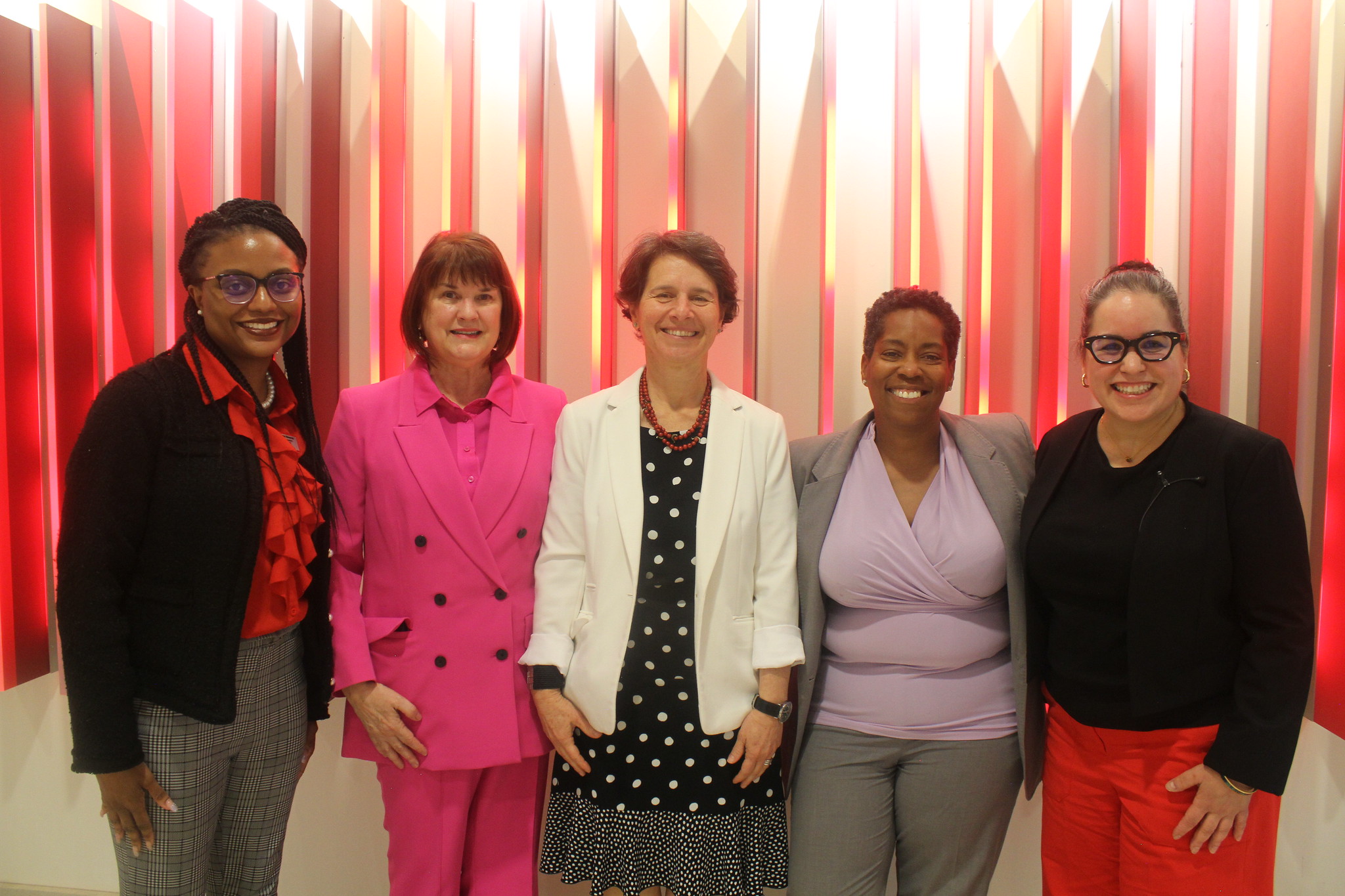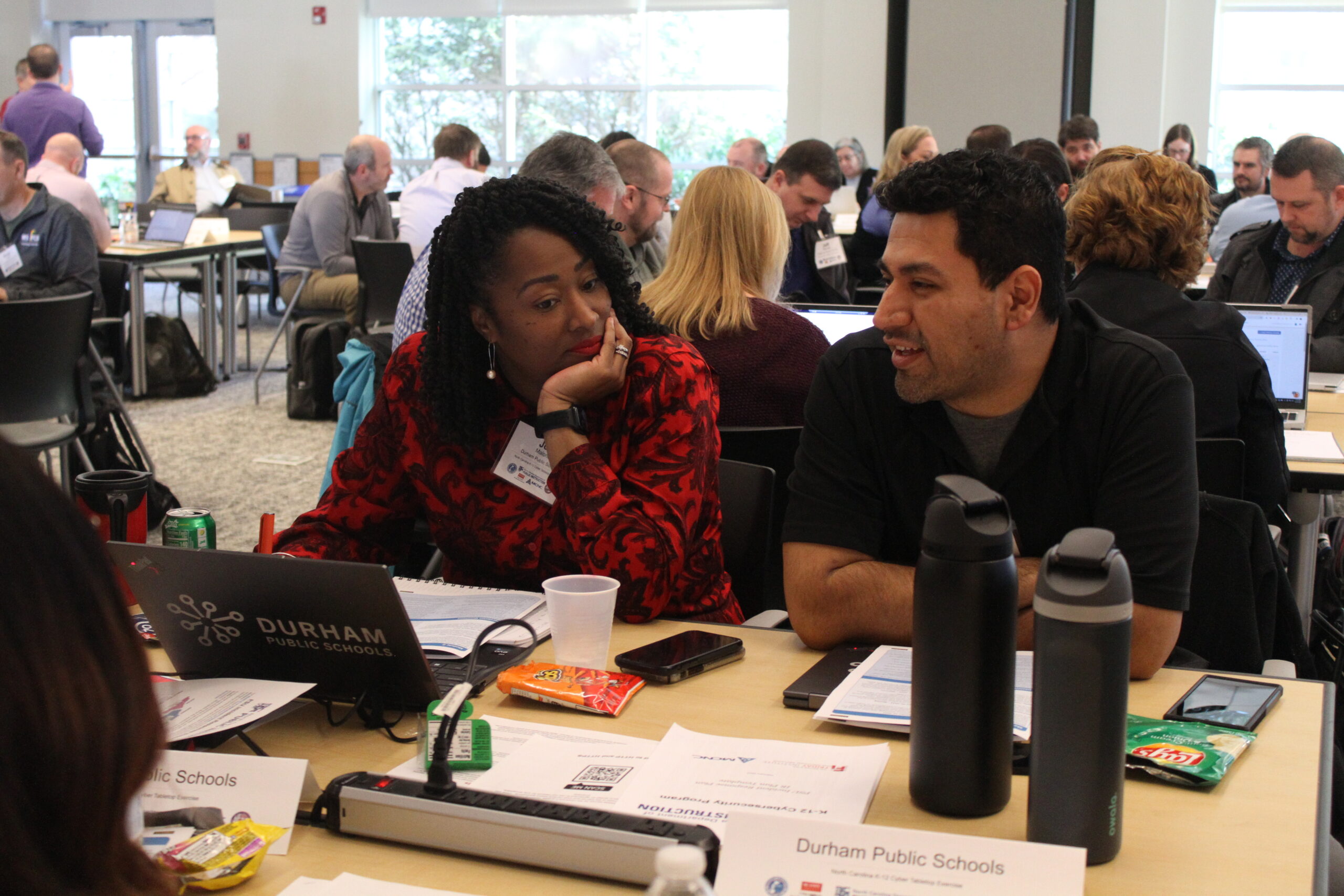K-12 Outreach Efforts In Step With NC State
July 31, 2013 — North Carolina State University was recently named the top land-grant and ranked number seven overall among public, national colleges and universities in granting the largest percentage of bachelor’s degrees in science, technology, engineering and math (STEM). The Friday Institute for Educational Innovation has several programs that help lead students on that same STEM focused path.
K-12 students is a key demographic for many projects at the Friday Institute. With new educational approaches, project teams engage students in interactive, visual learning environments in STEM subjects and provide information to their teachers.
ASSIST Pre-College Program: ASSIST has strategic outreach partnerships with 11 middle and high schools to enhance teachers’ engineering content knowledge and teaching methods, introduce nanosystems (use of scale in molecules) engineering concepts into the classroom, involve high school students in ASSIST research, and thereby increase the diversity and enrollment of domestic students in university engineering degree programs.
“NC State’s strength in STEM fields has a significant influence in our ability to educate the next generation of scientists and engineers,” said Dr. Gail Jones, professor of math, science and technology education. “The ASSIST Engineering Center has partnerships with four Raleigh middle and high schools to provide support for STEM education. College of Education faculty and students, along with the College of Engineering, work together to provide cutting edge research experiences for students. It is a great way to educate students while providing support for the STEM programs in place in our area schools.”
Maximizing the Impact of STEM Outreach (MISO): Working to determine the collective STEM impact of the university, MISO has partnered with NC State’s pre-college outreach programs. The team developed and implemented survey tools to analyze and measure student attitudes towards STEM subjects. This includes STEM career pathways and 21st century skills among fourth through twelfth grade students which are considered key outcomes for STEM education and workforce development programs.
“The team is excited to be partnering with K-12 STEM outreach programs and camps across campus, which will help to determine the extent to which these programs impact long-term educational outcomes. Additionally, the MISO Project also seeks to better understand the K-12 STEM pipeline, including the K-12 and higher education critical juncture,” said Tracey Collins, MISO’s Project Coordinator.
NC State’s North Carolina Mathematics and Science Education Network Pre-College Program (NC-MSEN PCP): The mission of the NC-MSEN PCP is to prepare underserved students at the middle and high school levels for careers in education and STEM. Students participate in exciting and challenging activities throughout the school year. Approximately 70 percent of the participating students have decided to pursue a career in education or STEM.
“According to data from the National Science Foundation, in 2006, the percentage of underrepresented minority students who have earned bachelor’s degrees in STEM is 16.7 percent in the U.S., but according to the National Center for Science and Engineering Statistics, in 2010, 7 percent of the STEM workforce is composed of underrepresented minorities,” said Braska Williams, NC State’s MSEN’s Program Coordinator. “Programs such as MSEN are vital to ensure that we have a diversity of STEM majors who attend NC State and to fill the U.S. STEM workforce. It’s so exciting to be a part of a campus that has such as emphasis on STEM; it gives our students the opportunity to visit and learn about so many things in the area of STEM.”
One of the focus areas of the Friday Institute is Innovations in Teaching and Learning. For more information about these and other projects, please visit fi.ncsu.edu/focus-areas/innovations-in-teaching-and-learning/
- Categories:

